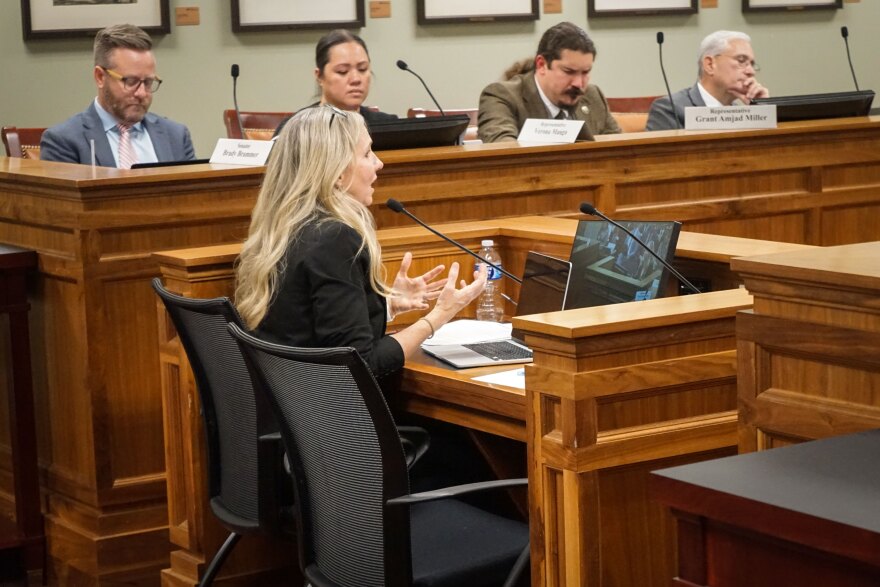Utahn Ashley Mitchell placed her son up for adoption 20 years ago.
“I think it's very scary with a lot of unknowns,” she said. “When people step in and claim to care about you and your best interests and the best interest of your baby, they are going to offer solutions that are very permanent solutions to this temporary issue.”
She sat in the second row of a packed committee room at the Utah State Capitol and listened intently to the proposed amendments to Utah’s adoption code. She works for Utah Adoption Rights, an advocacy group that lobbies for better laws for birth mothers and adoptive parents.
Utah is known for having some of the loosest adoption laws in the country. But that could change with draft legislation being discussed in the lead-up to the 2026 legislative session.
One of the leading issues Rep. Katy Hall wants to change is the restriction on birth mothers’ consent.
Right now, Utah code specifies that once a woman consents to put her child up for adoption, there is no turning back on that decision. Utah is one of the only states in the U.S. that has no revocation period to reconsider adoption.
“I think you have to put yourself in the shoes of this woman who has just given birth,” Mitchell said.
“It’s 24 hours — her hormones are going crazy, everything about her body is preparing for motherhood,” she explained.
In her experience, women are then expected to sign a consent form within 24 hours.
“Without being able to have any sort of clarity after a shower, after a meal, after a nap, to wake up and say, ‘Oh my gosh. What did I do?’”
The proposed change would give mothers 72 hours to revoke their consent, a moderate timeframe compared to some states like Alaska, which allows up to 10 days. Another consideration is the regulations around financial incentives that creep into adoptions.
According to data compiled by the Children’s Bureau and the Child Welfare Information Gateway, the national average cost for private adoption is between $30,000 and $60,000. And some agencies have been accused of providing cash, housing and gifts to expecting women in exchange for an adoption agreement.
Under the proposal, Utah adoption agencies would be prohibited from advertising online with financial incentives, a feature that stood out to Rep. Jason Thompson.
“I think we've probably been asleep at the wheel for some time,” he said. “I think it’s a very small minority in the adoption agency world that has gotten into some bad practices.”
Thompson said that for too long, Utah has been known for loose adoption laws allowing “bad actors” to take advantage of a lucrative market.
“You hear enough stories, and you leave Utah and travel, and you talk about adoption, and you hear from others what the perception is about Utah — that it's some kind of haven for adoption,” he explained.
He said Utah is a family-oriented state, but believes it's time to start asking some questions.
“What’s the purpose of adoption? It’s to make sure that these children are able to be placed in a loving home, that the birth mother is appropriately and adequately taken care of,” he said.
“My concern is when we start turning it into a business — a business that goes way above and beyond that.”
A Utah adoption agency representative present at the committee hearing declined to comment to KUER at this time, but said they are working closely with Rep. Hall.






